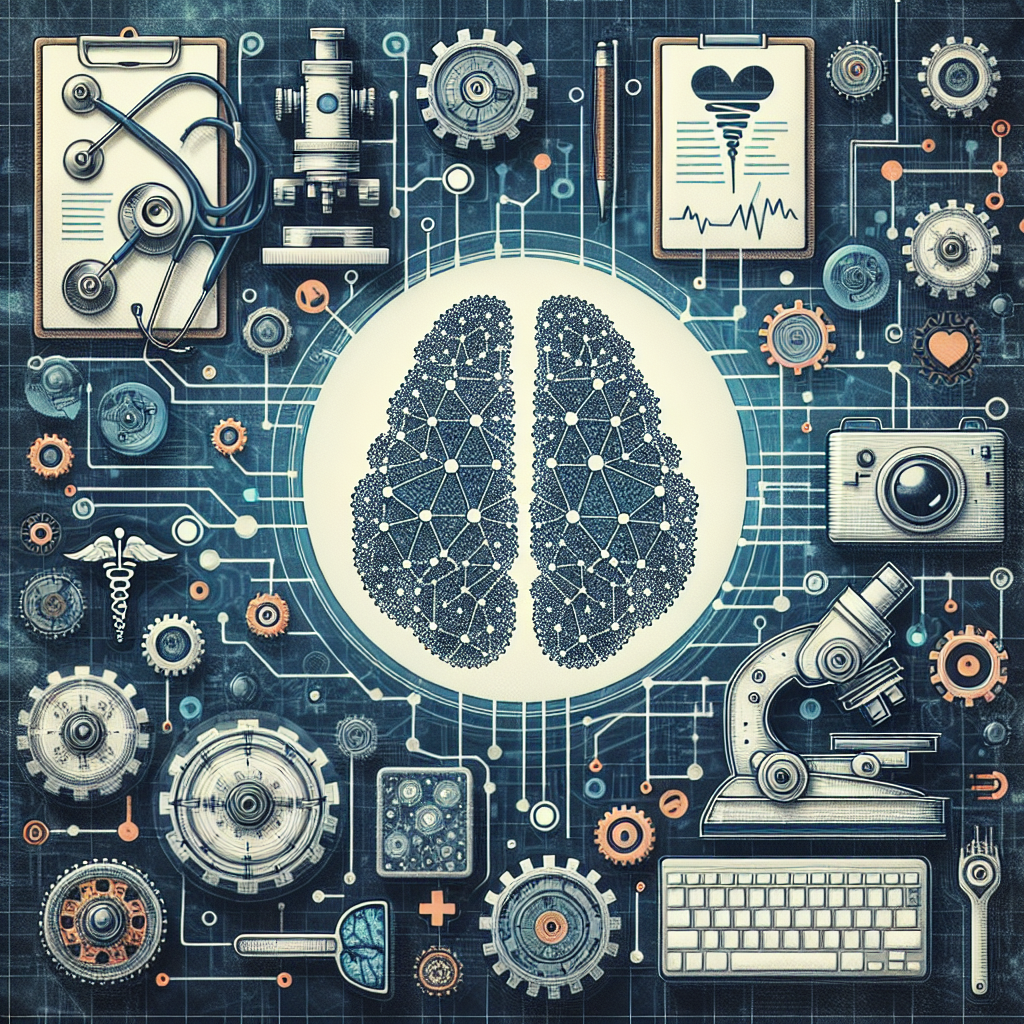The healthcare industry is constantly evolving, with new technology playing a crucial role in improving patient care, enhancing efficiency, and reducing costs. One of the most significant advancements in recent years is the use of artificial intelligence (AI) automation. AI automation is revolutionizing the way healthcare providers diagnose, treat, and manage patient care, leading to more accurate diagnoses, personalized treatment plans, and improved outcomes.
AI automation in healthcare involves the use of algorithms and machine learning to analyze vast amounts of data, such as patient records, medical images, and genetic information, to identify patterns and make predictions. This can help healthcare providers make more informed decisions, streamline workflows, and improve patient care. Here are some of the ways AI automation is changing the healthcare industry:
1. Diagnostics and Imaging: AI automation is transforming the way medical imaging is used to diagnose and treat patients. AI algorithms can analyze medical images, such as X-rays, MRIs, and CT scans, to detect abnormalities and make accurate diagnoses. This can help healthcare providers detect diseases at an earlier stage, leading to better outcomes for patients. AI automation can also help radiologists prioritize and triage images, reducing the time it takes to interpret results and improving efficiency.
2. Personalized Medicine: AI automation is enabling healthcare providers to deliver more personalized treatment plans to patients. By analyzing a patient’s genetic information, medical history, and lifestyle factors, AI algorithms can identify the most effective treatment options for each individual. This can lead to better outcomes, reduced side effects, and improved patient satisfaction. AI automation can also help healthcare providers monitor patient progress and adjust treatment plans in real-time, leading to more effective and efficient care.
3. Administrative Tasks: AI automation is streamlining administrative tasks in healthcare, such as scheduling appointments, billing, and coding. By automating these tasks, healthcare providers can reduce errors, improve efficiency, and free up time for staff to focus on patient care. AI algorithms can also analyze patient data to identify trends and patterns, helping healthcare providers make more informed decisions and improve outcomes.
4. Drug Discovery: AI automation is revolutionizing the way new drugs are discovered and developed. By analyzing vast amounts of data, such as genetic information, clinical trial results, and drug interactions, AI algorithms can identify potential drug candidates and predict their efficacy. This can help pharmaceutical companies bring new drugs to market faster and more cost-effectively, leading to better treatments for patients.
5. Telemedicine: AI automation is enabling the widespread adoption of telemedicine, allowing patients to receive care remotely through video consultations, online chat, and mobile apps. AI algorithms can analyze patient data in real-time, helping healthcare providers make accurate diagnoses and treatment recommendations. This can improve access to care for patients in remote areas, reduce wait times, and lower healthcare costs.
Despite the many benefits of AI automation in healthcare, there are also challenges and concerns that need to be addressed. For example, there are concerns about data privacy and security, as well as the potential for bias in AI algorithms. Healthcare providers also need to ensure that AI automation complements, rather than replaces, human judgment and expertise.
In conclusion, AI automation is transforming the healthcare industry by improving diagnostics, enabling personalized medicine, streamlining administrative tasks, revolutionizing drug discovery, and expanding telemedicine. While there are challenges and concerns that need to be addressed, the potential benefits of AI automation in healthcare are vast. By leveraging the power of AI, healthcare providers can improve patient care, enhance efficiency, and reduce costs, leading to better outcomes for patients and a more sustainable healthcare system.
FAQs:
Q: How is AI automation used in healthcare?
A: AI automation is used in healthcare to analyze vast amounts of data, such as patient records, medical images, and genetic information, to improve diagnostics, enable personalized medicine, streamline administrative tasks, revolutionize drug discovery, and expand telemedicine.
Q: What are the benefits of AI automation in healthcare?
A: The benefits of AI automation in healthcare include more accurate diagnoses, personalized treatment plans, improved outcomes, reduced errors, enhanced efficiency, better access to care, and lower costs.
Q: What are the challenges of AI automation in healthcare?
A: The challenges of AI automation in healthcare include concerns about data privacy and security, potential bias in AI algorithms, and the need to ensure that AI complements, rather than replaces, human judgment and expertise.
Q: How can healthcare providers leverage AI automation?
A: Healthcare providers can leverage AI automation by investing in AI technology, training staff to use AI tools effectively, collaborating with AI experts, and ensuring that AI is used ethically and responsibly.

